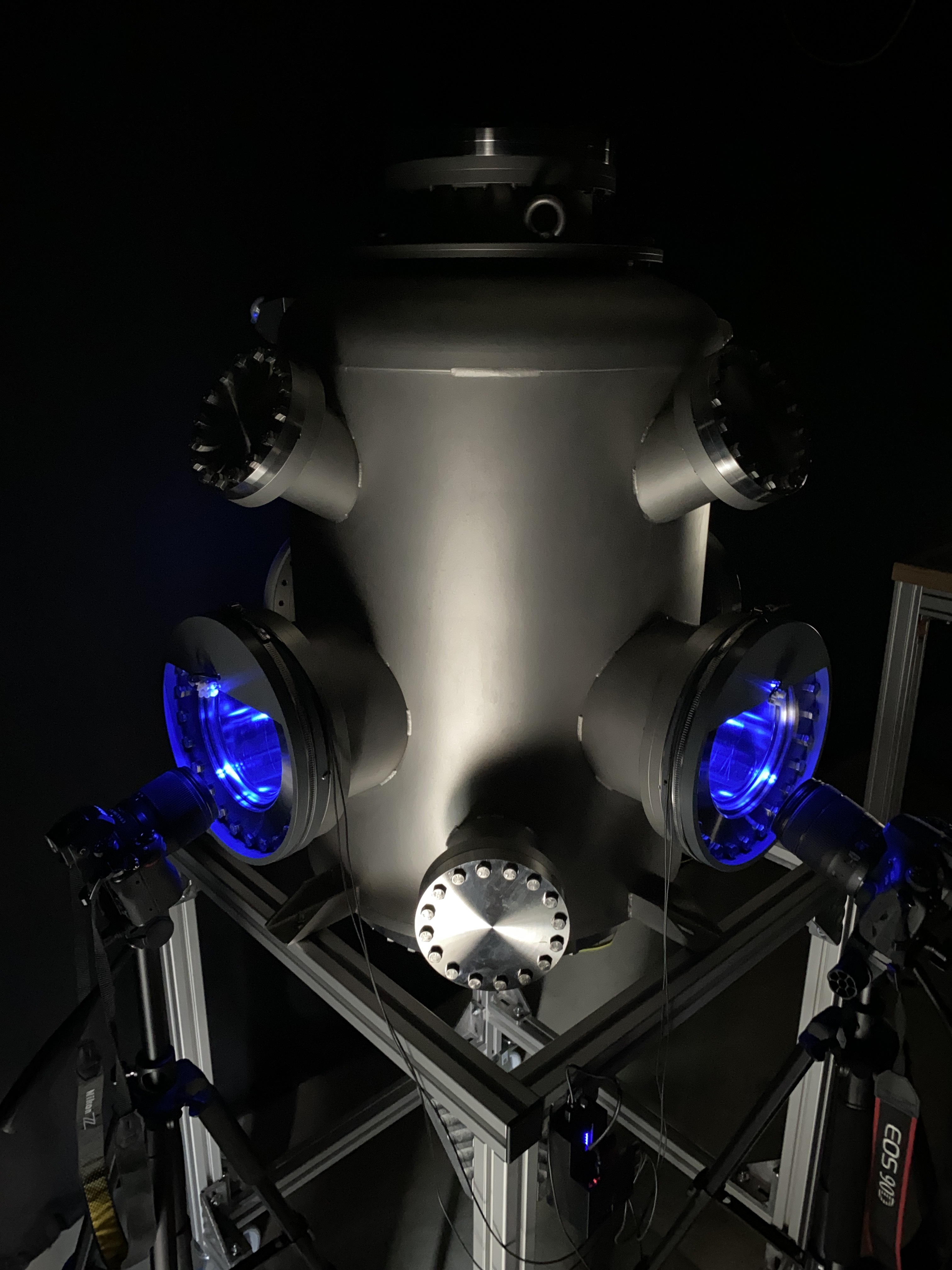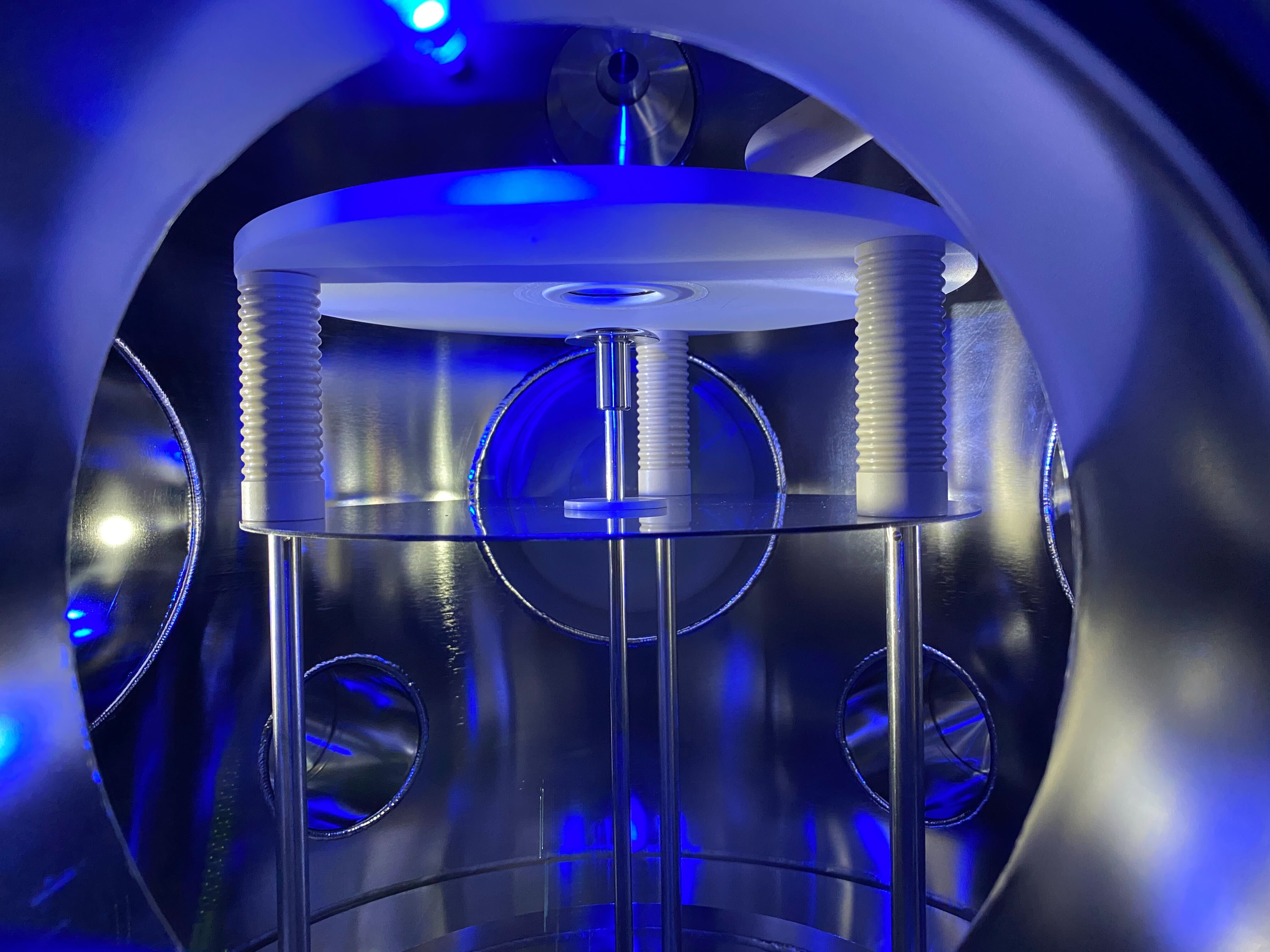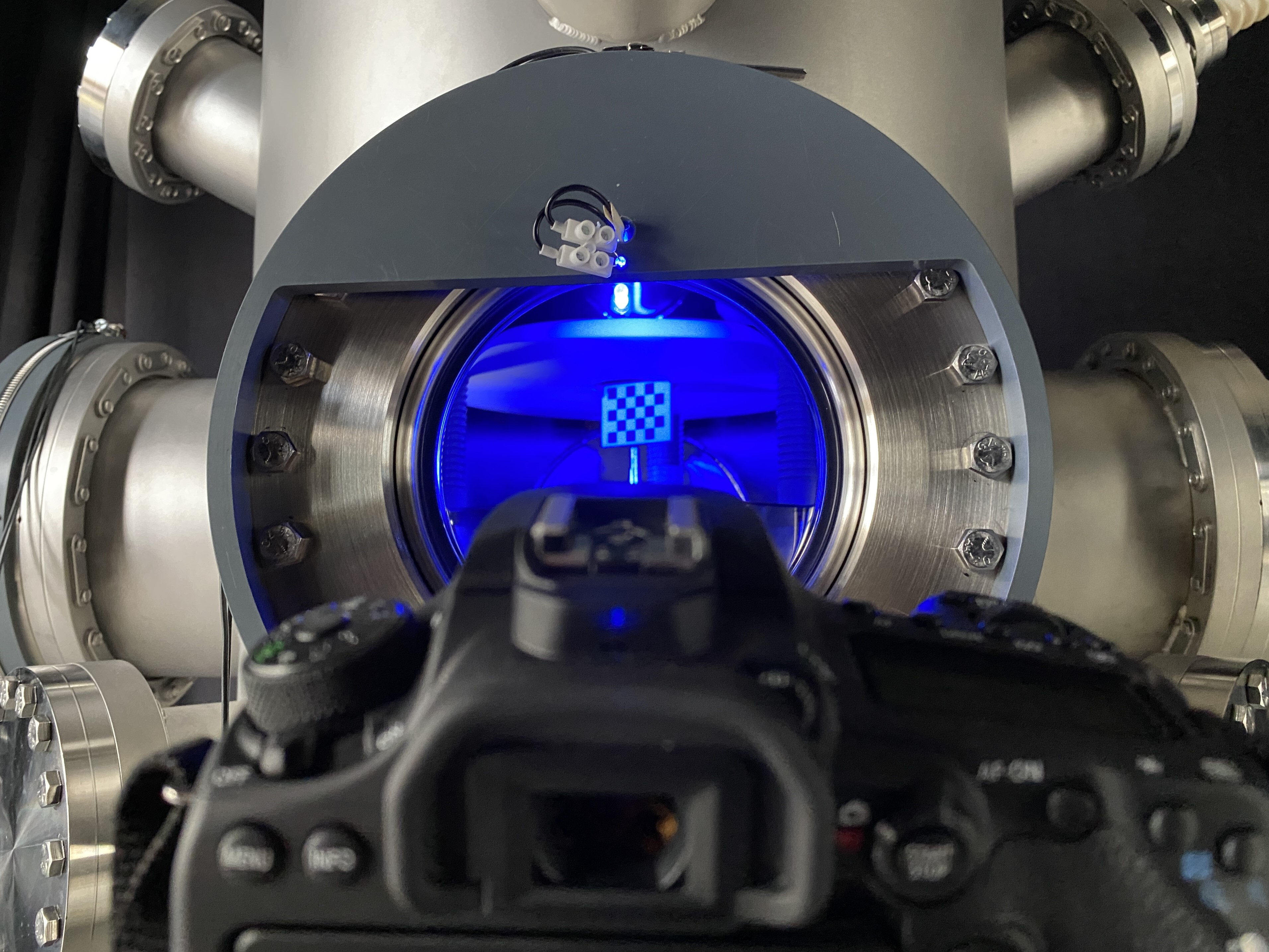Bachelorarbeiten
Mögliche Themen für Bachelorarbeiten (Stand Dezember 2025):
-
Detecting neutrons for DELight
DElight is an upcoming direct detection Dark Matter (DM) experiment using a novel approach to probe the thus far uncharted low mass DM parameter space. In a joint effort of groups from KIT, U Heidelberg and U Freiburg, we will search for signals of dark matter scattering off He nuclei in superfluid helium. A potential background for any DM-induced nuclear recoils (NRs) are neutrons entering the DELight target cell. On the other hand, neutrons are an ideal calibration source to identify and understand NR signatures.
Your project will be setting up a neutron detector to measure the neutron flux in the environment of the DELight cryostat. For that purpose, you will use two He3 neutron counters together with a preamplifier to develop a stand-alone neutron measurement system with its cabling, power supply and data acquisition system. The goal of this thesis is to take first measurements of the thermal neutron flux in the lab environment. Depending on the progress, a measurement campaign in the Vue-des-Alpes underground lab in the Swiss Jura mountains can be envisaged.
You should enjoy working with electronics hardware and have basic programming skills in languages such as Python or C++ to develop the data acquisition and analysis.
Project key topics: Detector handling, software and electronics development, data analysis
Project timeline: January 2026 onward
-
Research & Development of New Electrodes for the Next Generation of Dark Matter Particle Detectors


 The XLZD experiment will be the ultimate liquid xenon-based astroparticle observatory for the direct detection of particle Dark Matter and studies of Neutrino physics. Development of electrodes that will lie at the heart of the XLZD detector is of paramount importance. Any such electrodes must withstand very large electric fields without causing significant electron emission or breakdown. To study the performance of various electrode samples in vacuum and gaseous environments we have developed bHiVE - bite-sized High Voltage setup for Electrodes. Accompanied by a high-voltage power supply and an imaging system, bHiVE allows us to study on smaller scales different potential electrode configurations and materials.
The XLZD experiment will be the ultimate liquid xenon-based astroparticle observatory for the direct detection of particle Dark Matter and studies of Neutrino physics. Development of electrodes that will lie at the heart of the XLZD detector is of paramount importance. Any such electrodes must withstand very large electric fields without causing significant electron emission or breakdown. To study the performance of various electrode samples in vacuum and gaseous environments we have developed bHiVE - bite-sized High Voltage setup for Electrodes. Accompanied by a high-voltage power supply and an imaging system, bHiVE allows us to study on smaller scales different potential electrode configurations and materials.
Figures show the bHIVE setup, a view into the center with the sample holder and a view from outside with the camera calibration system (from left to right).
-
Characterizing the High-voltage Performance of Electrodes with Machine Learning
In this project you will conduct a series of tests with different small-scale electrode samples, comparing and characterizing their performance under high-voltage conditions in vacuum, air, argon and nitrogen. Additionally, You will study the effects of different coatings and the effects of defects on electrode surfaces on the generated fields. You will also develop electrode treatment techniques, as well as the procedures for performing the aforementioned tests. Subsequently, you will contribute to the development of existing Python-based software for data processing and analysis, comparing your test results with computational models and theoretical predictions. Moreover, you will also take part in the realization of the bHiVE detector, participating in its operation and development.
You should enjoy working with hardware and have basic programming skills in a languages such as Python or C++.
Project key topics: Software and hardware development, electric fields, data analysis
Project timeline: January 2026 onward -
Development of a Sensor & Data Acquisition System for Field Induced Emission from Electrodes
In this project you will participate in the development of a photosensor and data acquisition system (DAQ) for the bHiVE detector. The goal of the system is to detect faint light emission produced from defects (such as spikes or features on the electrode surface) when the electrodes are operated under high voltage conditions in gaseous argon. To that end, you will construct a hardware setup for testing the performance and sensitivity of several photomultiplier tubes (PMTs) in a light-tight, gaseous argon environment. Additionally, you will develop the software for the electronics which will be used for the acquisition, readout and processing of the signals detected by PMTs. Depending on your interests and expertise, you could work on the development of the DAQ software control and triggering algorithms or/and development of the firmware for electronic modules. Using this hardware test setup and the developed readout system, you will perform multiple tests aimed at detecting faint photon emission from real electrode samples.
You should enjoy working with software and hardware, and have basic to intermediate programming skills in languages such as Python or C++.
Project key topics: Data acquisition, software and hardware development, photosensors, electronics, electric fields, data analysis
Project timeline: January 2026 onward
Für weitere Informationen wenden Sie sich gerne auch direkt an Prof. Dr. Kathrin Valerius oder Dr. Klaus Eitel.
